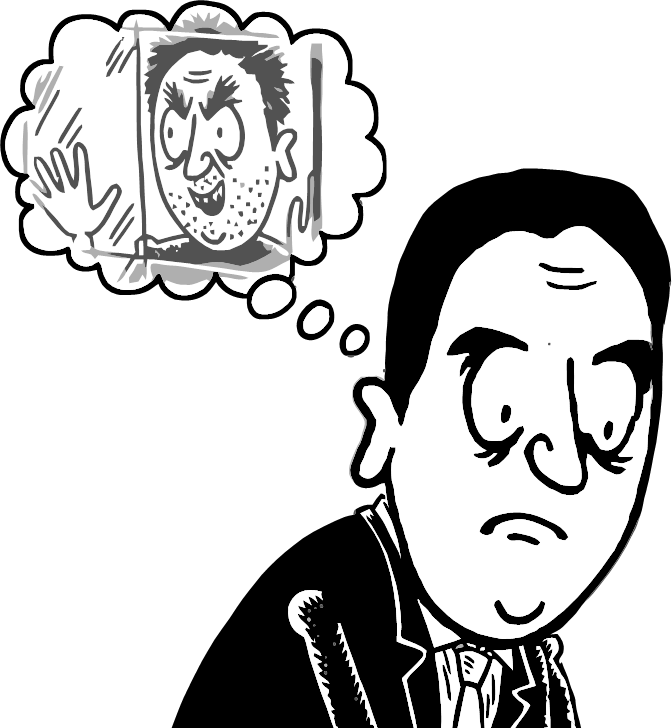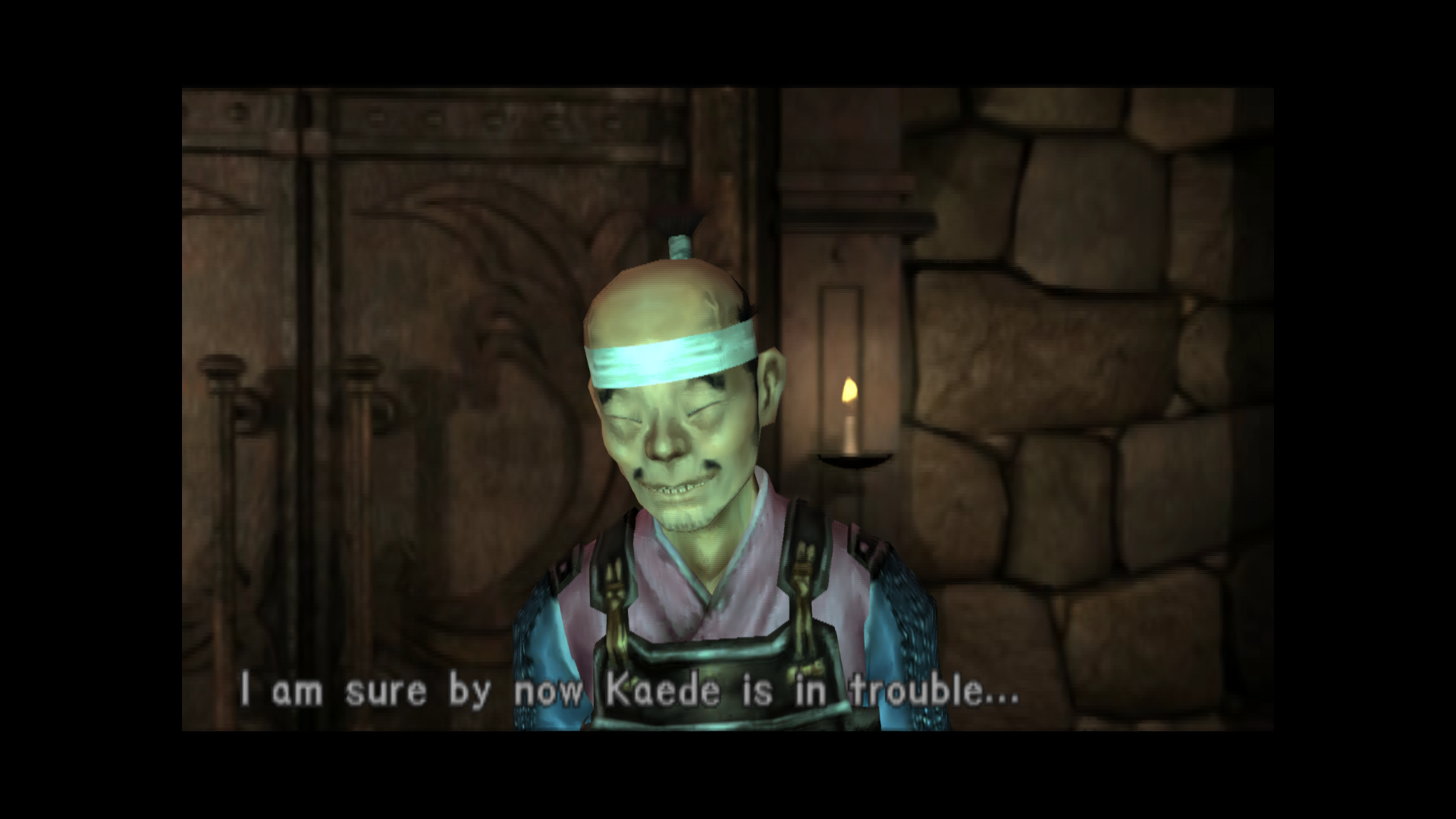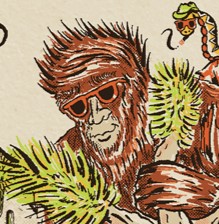I think this has the quote wrong?
Pretty sure it’s “suck my tongue”
He’s unfortunately the public face of Buddhism to the common person in the West, but I always have to go out of my way to emphasize how he’s really just a drop in the ocean. He’s not even the spiritual head of his own school, just the political figurehead for the exile government.
I studied at a Kagyu-Nyingma monastery and he never gets mentioned at all. His relevance to the average Buddhist who isn’t Tibetan is really quite low, and even many Tibetan practitioners don’t think of him as an authority, but just another teacher they may or may not be familiar with.
Someone practicing Zen or Chan or Pure Land, or anything else outside of that sphere doesn’t regard him at all except on an individual level.
Edit: I know he tries to sell Buddhism to the average Westerner who is influenced by Facebook posts, so pithy quotes like this are his style. But the Gelug school is literally the debate school that practices reductio ad absurdum in the courtyards to suss out what is true. So it’s always a little sad to see that and the rest of the philosophy de-emphasized.
I studied at a Kagyu-Nyingma monastery
Thats so cool, is there any ancient and forbidden knowledge you learned there which you’d want to share with us?
Lol, no. I just mentioned it to point out that even the other Tibetan schools don’t really have much to do with the Dalai Lama. His picture isn’t hung up anywhere.
I used to think that if I ever wanted to leave everything behind, I’d go be a monk somewhere. But then I started falling asleep during lectures because they were being live translated from Tibetan into English and it’s hard to concentrate when someone is speaking a language you don’t know but you have to listen to them respectfully like you have a clue what it is they’re saying.
The biggest lesson I learned was the value of community and I sort of understood why people congregate to churches and things. Everyone around me had the same baseline assumptions of what they should be doing to better themselves and to support each other, so it felt really significant to progress along that path together. These were people that traveled from all over the world to come to this spot to learn from authentic teachers, so they were also much more genuine than the meditation bros you’ll find many places in the West. I hope to find that same community of socialists irl when I am in a position to do so.
If it were possible, I’d fly every Western Buddhist somewhere like that so they can experience the culture shock between their perception of commodified versions of Buddhism presented here and how much logic and philosophy is actually involved. It isn’t just good vibes and sitting on a meditation cushion. There’s mountains of texts written about epistemology, ethics, logic, etc. And it’s not static, there’s been many advancements in thought over the last decade. Such as how we now know that both Mahayana and ‘Theravadin’ (they weren’t called that back then) Buddhists existed in the same monasteries in the past and no longer think that Mahayana was a later development, but competing schools of thought that developed in conversation with each other.
There’s not really too many ‘secret teachings’ or anything. Even the things that are supposed to be ‘secret’ are really just things you’re supposed to be trained by a teacher on first so that you do them properly. It’s not a gatekeeping thing, but a “hey maybe you shouldn’t meditate in front of corpses to contemplate death without first appropriately contextualizing this action and mentally preparing yourself so that you don’t develop mental health issues” thing.
EDIT: Oh, yeah, that time also turned me vegan. The monastery only served vegan food. Meat has been big in Tibetan culture for a long time, but even long-dead masters had problems with it and monasteries forbidding meat is becoming more and more widespread. There’s lots of texts about animal rights and their place in Buddhist ethics as well.
Fascinating, thank you for the writeup!
So how do you prepare yourself mentally to contemplate death in front of a corpse?
I don’t honestly know, it’s not something I tried and it’s not something anyone I know actually did. It is something that is mentioned in texts though. It’s supposed to be a very advanced practice if you do it at all, so not something for newcomers. Primarily for the reason I mentioned of how it can really mess you up if you just go and do it on a whim.
Yeah thats fair enough, did you learn/experience anything that changed the way you see reality on a fundamental level (other than what you mentioned about community)?
Well, I edited my comment to say the experience also turned me vegan. Since the primary goal is the reduction and elimination of suffering, it only stands to reason this includes animal suffering. I don’t consider myself a Secular Buddhist in that I don’t try to mold the religious teachings I’ve received into a secular framework (and I do not like Stephen Bachelor), but I just go along with some things while not personally believing they are true. Rebirth being the biggest thing, where a lot of Buddhist philosophy falls apart if you remove cosmological components like that, since many things follow from that assumption. But I’m not personally sold.
Buddhists tells a lot of stories about how significantly advanced practitioners can influence their own rebirths by building the mental fortitude (through years/lifetimes of meditation practice) to withstand and navigate the hellish and chaotic experience of their mindstream being ripped from their body at death and scattered/pulled in many different directions to their new life. It’s silly to tell, but essentially, someone told me that my cat could be an enlightened being who is here to teach me patience and compassion for other beings. Do I literally believe that? No. But the idea did make me try to temper some of my impatience with their more destructive behaviors and open my mind to being more compassionate toward other animals in general.
Wikipedia no doubt has a simplified explanation, but in Madhyamaka philosophy, there’s the idea of the “two truths” which is something we delved very heavily into. I don’t know that it has really changed how I interact with the world as much as the former thing though.
I have a ton of negativity associated with pretty much every major religion, because at least here in the West, it really seems like everything is just appropriated to reiterate that “all is well under the Earth” and to morally condemn eating chocolate cake and sex, but when it’s not Christianity it’s basically just made into Christianity but more valid because it’s not made by white people (I mean fair but it’s also kind of… orientalist and obviously appropriation)
It’s really nice seeing all the context in how there’s actual philosophy and ideas and practices and esoteric studies and cool shit and weird shit like Christianity. It’s not some sort of exceptional (and exceptionally racist concept of) “magic oriental knowledge”, it’s just… another tradition with amazing elements and communities and it’s own cosmology and beliefs.
Sorry that’s probably irrelevant but I just found the Wikipedia article really cool. It reminds me (even though it’s entirely different) of how you had so much philosophy and ideas spiral off of Christianity that are sometimes integral to it and sometimes just monks accidentally discovering how to make a new kind of beer.
But then I started falling asleep during lectures because they were being live translated from Tibetan into English and it’s hard to concentrate when someone is speaking a language you don’t know but you have to listen to them respectfully like you have a clue what it is they’re saying.
As far as I know, Tibetan is one of the hardest languages to learn, if not the hardest (with Polish being the other one). Its “orthographic depth” is all fucked because it’s kept the same spelling for most of its words since 620 AD, with some spelling reforms around 800 AD. It’s like if English had everything written in Latin, but pronounced like we already do (example: “finally” being spelled “ad ultimum”). So not only is it in a family already difficult for outsiders, there’s no way to learn the spelling except by memorizing specific words, which also makes looking up words difficult.
Arabic has a similar life story to Tibetan, where it was spread and kept alive through religious texts (the Koran). But unlike Tibetan, Arabic has localized and standard updates to its writing. Vowels, for example, weren’t originally written in the Arabic used in the Koran. Modern Arabic has vowels inserted to make it easier to read (that is what all those , ’ ` -looking things are in Arabic script, those are vowels). Tibetan hasn’t done this.
It’s one of the challenges of improving literacy among Tibetans. A lot of them are like “Have you seen this shit? It may as well be Greek.”
I don’t know the historic background, but I would totally believe this. I learned a little bit of spoken Tibetan while I was there, but the romanized words are not pronounced at all like they’re spelled and pronunciation is difficult in general. It wasn’t necessarily the language itself though, it was more that you have a break in concentration where someone is speaking Tibetan for 2 minutes while you stare at them, then you listen to the translator for 2 minutes and try to write things down, then it’s back to not understanding for another 2 minutes, etc. I imagine it’s a lot more effective when you speak the language. But 2 hours of that a day was really not fun. Still learned a lot though.
Just a little quibble with your point about Tibetan writing - a better comparison would be Modern English written as it was during the Old English period. So like “lord” might be written as “hlafweard”, for example, because it is a direct descendent of that word put through hundreds of years of pronunciation change. English doesn’t come from Latin and “finally” doesn’t come from “ad ultimum”, whereas Tibetan does come from Old Tibetan, the language the script was originally fairly adequately adapted to.
The other day, after I claimed that china isn’t a historically expansionist or militarist country, I was told “what does the dalai lama have to say about that?”. Holy shit people are dumb. Like, ask the pope what he thinks about the genocide in Palestine instead, genius.
The idea of China invading the country at the request of the Tibetan Communist Party, crushing the Lamas, freeing the slaves, and iirc they had to do it twice because the Lamas tried to start shit again, would never penetrate, would it?
I remember a Chinese person slapping down some of this bullshit saying that 98% of Tibetans speak Tibetan and asking the American how many native americans spoke an indigenous language.
and asking the American how many native americans spoke an indigenous language
And this is why libs invented ‘that’s just whataboutism’

And in lib tradition the term would be completely unapplicable here lmao
There’s also just the fact that Tibet diplomatically rejoined with China right after the end of the Civil War and only decided to split a decade later, after much work had been done to improve conditions for the serfs and this lead to an outraged aristocratic class trying to breakaway to maintain power. It’s very roughly like calling the US expansionist for invading the Confederacy.
A question for them would be “what does the Dalai Lama have to say about Nepal having peasant slaves into the 20th century and why do all the Bhuddist Temples have to be gilded in gold?”
Isn’t Nepal governed by a communist party? Why would they allow that?
Sorry I know basically nothing about Nepal I am a little baby.
The Maoist uprising only occurred within the last 20 years, starting around 1996 and the monarchy was abolished in 2006. There were a lot of concessions made for this to happen and restrictions put on the most militant Maoists to re-integrate them into society and work with them through political processes instead of further violence. They’ve been ruled by a Democratic coalition government for a while that includes a few different communist groups. But they aren’t a wholly socialist country and there’s still elements of monarchism and things like that.
As other posters have said yeah the communist uprising and now coalition state have outlawed slavery and sought restitution from the Monastery system for it, outlawed the monarchy, and additionally the quality of life significantly went up especially child and maternal health. Also don’t feel bad about asking questions leftists love answering questions
“The evil colonialism of the US North preventing slavery without the consent of the South” - probably something an Amerikkkan has said before
Back when I used to make the mistake of browsing through quora, this was absolutely the kind of cope that was popular amongst americans.
wtf
Didn’t he just tell some kid to suck on his tongue like a year ago?
Yup, and deprogram sub upvoted his defenders for that.
r/thedeprogram seems like the mirror universe version of r/chapotraphouse. Instead of the sub being more based than the showrunners, they’re less based.
It’s pretty easy to explain though, and not really chapo but GenZedong, that sub got harsh struggle sessions about imperialism and religion, and when it was banned, based people went to Lemmygrad while centrists and clerical socialists went to deprogram (good advice: don’t engage on deprogram about religion, while they are some people with correct takes there, you can more often read takes like the defence of tongue sucking or absolute nuclear takes that you can’t become marxist without religion or that religion is inherently materialist).
good advice: don’t engage on deprogram about religion, while they are some people with correct takes there, you can more often read takes like the defence of tongue sucking or absolute nuclear takes that you can’t become marxist without religion or that religion is inherently materialist
Oof. It doesn’t help that at least 2 of the 3 bois are religious. Hakim is Muslim and Yugopnik is Eastern Orthodox. I don’t know about JT.
Yeah every time you write something critical about religion they are like “Hakim is muslim” as if it didn’t led him to some outright wrong takes too including straight up proselitysm once.
I know he has some cringe takes on religion, but I didn’t know he proselitized once.
Something around last year. I searched it since i’m fairly sure i commented on it but reddit search is utter shit. I think it was in comments to one of his youtube videos and then it surfaced once or twice on reddit sub.
Op have screens in question, in second you can see how Hakim says Quran is his favourite book and he reccomend reading and even in-depth studying it to all visitors of his channel, which is basically proselitism especially since i very much doubt anyone coming to his channel regardless of option cames for hearing about his lord and saviour. On third you see him reccomending some fascist conversion story. Plus massively overestimating role islam plays in liberation of the people in the region and not mentioning how it even is on this position.
Thread below is also full of nuclear takes including the one about “materialist religion”
Imo Hakim deserves a pass on this matter. I don’t think he’s wrong at all when he comments about the role that Islam has played in the resistance of peoples in his region against empire, resistance against war that has been very up close to him personally.
Yugopnik is religious? I had no idea
I’ve seen his kindness and it shouldn’t be around kids
who needs a temple when they are on the CIA’s payroll
Didn’t this guy own slaves or some shit?
I doubt it, the pla stopped all that shit in the fifties. He’s old but not that old. Afaik he’s spent most of his life being trotted around as a mascot for anti-chinese propaganda. I don’t think he’s ever had much, if any, agency.
He was born in 1935 and became Dalai Lama in 1940.
Good to know, thank you.
Tenzin was born after the fall of the Tibetan feudal system so no he didn’t personally.
He would love it if he could tho, as do most of the lama class in exile
What? Serfdom was abolished in 1959 and he was born in 1935, and became Dalai Lama in 1940.
Plus if you believe him (no), he owned slaves multiple past lives
I mean if this is the same guy becoming Dalai Lama over and over again then he was put in his seat by Mongols and his title is direct parallel to the title Genghis Khan, since Genghis in Mongol have roughly same meaning as Dalai in Tibetan.
Yeah, that should be taken in to account.
Yeah my memory was a bit off. For some reason I thought he was born in the late 40s.
Yes, idk what people below say. He was born in 1935, became Dalai Lama in 1940 and serfdom was abolished ultimately and he was exiled in 1959
No need for temples coz you got booted out bro
Come listen to this banger instead https://yewtu.be/watch?v=b60_Vis2x24
The burning of the slave contracts gets me emotional ngl
CW: some historical footage of Tibetan serfdom that may be disturbing
Oof, yeah. Slavery and serfdom in pre-communist Tibet was bad. Maybe not as bad as American slavery in scope, but very very bad. Please exercise caution when you research it and be ready to take a break if it starts to be overwhelming.
“Your own mind, your own heart, and your child sex slaves are the temple. Your philosophy is simple kindness and millions of dollars.”
Reminds me of a funny video I saw that talked about some of the most famous Japanese warlords and their depiction in media; one of the warlords is often depicted as a funny monkey man but he was a brutal war criminal who tried to invade Korea and killed tons and tons of people, and he mentioned something about the other two but I can’t recall what it was exactly (I think one of them was Nobunaga who I think he said was the least worst of the bunch but still bad).
You get this simple philosophy here but the history behind the group is actually quite horrific (if I recall correctly, wikipedia even has a page just for Tibetan torture methods).
I hate how Nobunaga gets venerated as a god-general-statesman in cultural exports when he was just a ruthless conqueror the same as anyone else. I wish one one-hundredth of the ink spilled for him was spilled for the Ikko-Ikki peasant revolt he crushed. Were that the case, I might be able to successfully research it.
The whole Samurai caste is romanticized, especially outside of Japan. They were the ruthless, opportunistic enforcers of the hierarchy, not honorable warrior-scholars. Bushido is what led Japan down the path of imperialism and resulted in WWII.
This doesn’t excuse them from being forces of reaction, but they did become much more scholarly after they stopped having wars to fight.
There is a thesis that one of the main reason Hideyoshi ordered invasion of Korea was to actually get rid of the dregs of Sengoku period, if they succeeded it would be a bonus But they failed on both fronts what ensued was three biggest and bloodiest civil wars campaigns in feudal Japan history, only then they settled up and became one of the most useless parasitic classes in history of mankind. And eventually they got outparasited by usurers and become prime source of imperialist lackeys.
There’s fun (and actually non bloody or horrible for once) example of the real Samurai ethos i read in book. I think it was in XVIII century, when a small and pretty isolated garrison of 200 men in mountains of central Japan got denounced to bakufu, and inspection turned out that basically nobody there was doing any samurai things, most of them even sold their swords and entire garrison just said “fuck this” and they were working in nearby pottery. Normally this would be horrible scandal ending up in the mass suicide order (bakufu did such things), but this particular pottery was famous for producing very high quality tea sets for arsitocrats so entire case was hushed.
There definitely needs to be more media featuring the Ikko-Ikki. So many fascinating stories to tell.
Weapons, training, and lifestyle
The Ikkō-ikki bands of the 16th century, due largely to their origins as countryside mobs, used quite varied armor and armament. Many wore the more traditional priest robes, with varying degrees and types of armor. Some wore various sorts of helmets, while others opted for the straw hat and cloak of a peasant. Naginata remained very common, along with a variety of swords and daggers, and a limited number of arquebuses. Finally, while not truly armor nor armament, a very common item wielded by the mobs of Ikkō-ikki priest warriors was a banner with a Buddhist slogan written upon it. Some of the more common slogans included the nenbutsu chant “Hail to Buddha Amida!” (Namu Amida Butsu; 南無阿弥陀仏) and “He who advances is sure of salvation, but he who retreats will go to hell”.[3]

Iirc at some point in Sengoku era they controlled entire Kaga province for years, but fell later as daimyos consolidated the power.
There was also armed buddhists temples, like Mount Hiei or temple at Osaka had few thousands armed monks at some points, and they were better armed than all feudal armies since some temples in Japan were for some reason arm producing centers and that included firearms. Unfortunately the usual organised and armed religion thing ticked off for them and unlike most ikko-ikki they were scourge of nearby territories, once even almost completely torched Kyoto in probably biggest and most violent monachomachia in history of mankind. Wiping them out was really best thing Nobunaga did.
This is an entire section of history I know next to nothing about. I think I’ll enjoy finding more.
Always fun to play as in total war
Even when you fight Nobunaga in media you’re usually doing it as the stooge of some other warlord
Were the Ikko-Ikki peasants the ones who became ninjas?
“Ninja” were mainly samurai doing spy shit. They might disguise themselves as peasants, but usually they were from the warrior caste acting on behalf of their lord. The whole “sneaky guys in black pajamas” was something that came from plays where people playing ninjas would dress in black to hide in the background of a scene. Then they would enter the stage and it would look like they appeared out of nowhere.
No, ikko-ikki were the local self-defence groups made of petty samurai, armed monks and peasantry in the Sengoku era, they were reaction to feudal warlords doing usual warlordy things.
Ninjas, more properly called shinobi, were just medieval kind of intelligence operatives working on behalf of usual feudal lords. They mainly did spying and occasional assassination or sabotage, and didn’t dressed funny.
Not to my knowledge, but as I said I have mostly failed at successfully researching them. I think ninjas were mostly peasants and samurai working on behalf of warlords, whereas the Ikko-Ikki was more of a grassroots movement.

lol, was it this guy, Hideyoshi Toyotomi? He was in every Onimusha game too as Nobunaga’s sidekick before becoming the ruler of Japan between the third and fourth games. The final Onimusha game is actually all about his atrocities- invading “the continent”(the country is never specified), massacring civilians, outlawing Christianity and killing all Western missionaries (though that last one doesn’t sound too bad)
The funny thing is that he ends up completely exonerated in Onimusha lore- he was just a smol bean who became possessed by demons and he feels real bad about it
Yesssssss, that’s the guy! He did so much monstrous stuff but he’s usually depicted in a goofy manner!
outlawing Christianity and killing all Western missionaries (though that last one doesn’t sound too bad)
Most of work here was done later by Tokugawas: Ieyasu, Hidetada and Iemitsu, but despite brutality it was a W (most of said brutality happened really during Iemitsu reign). Hideyoshi observed in real time how christianity served as softener for colonialism and it’s clear he wanted to avoid it, though preferably keeping trade with Europeans. Interesting fact is that christianity was pretty thin in Japan as in case of both Sekigahara campaign and later sieges of Osaka, overwhelming most of Japanese christians supported Hideyoshi’s heir Hideyori.
Nobunaga seems to be portrayed as a literally demonic monster in a lot of Japanese games and media. Same as Muramasa being reduced to a stock villain whose swords are magical and evil.
Wasn’t Muramasa just a competing swordsmith? It’d be like if that one guy in ancient Mesopotamia with the shitty copper was turned into some kind of Final Fantasy final boss.
I don’t think he was even a competitor. Apparently Masamune was like 300 years prior. Supposedly Murmasa’s school made swords for many of Tokugawa’s troops and retainers so when the Tokugawa’s had disasters playwrights would spice things up by attributing it to Masamune’s demon swords or something.
Stories don’t have to be true, and one story I did read was about them being competing contemporaries trying to make a superior blade, one of them cutting too forcefully and the other being very gentle and smooth, or something like that.
That seems to be how they’re frequently depicted in media. And also lol “oh no my sword is too good at cutting! It’s evil cutting!” playwrights lol.
I did like the Taoist idea I read a while back about a blade being sharp enough to sort of unmake something as it cuts through it, keeping its edge by not hitting any points of resistance that it didn’t need to.
I even worked that into a key moment in my second book, from an antagonist character that had a habit of breaking swords a bit too much before that moment.
(if I recall correctly, wikipedia even has a page just for Tibetan torture methods)
Would you happen to have a link handy? A cursory google search yields nothing but the expected anti-Maoist trash
Sorry, forgot to reply; I believe the info was here: https://en.m.wikipedia.org/wiki/Serfdom_in_Tibet_controversy
I can excuse being an anti-communist relic of a fallen feudal slave state, but I draw the line at anti-gooning stances.
The CIA headquarters in Langley, Virginia, is his temple.
So why does he and his cronies even whine about losing temples, land and slaves? China did them a favour!
Met(t)apost: Communism is taking the philosophy of kindness and applying it to political economy

















